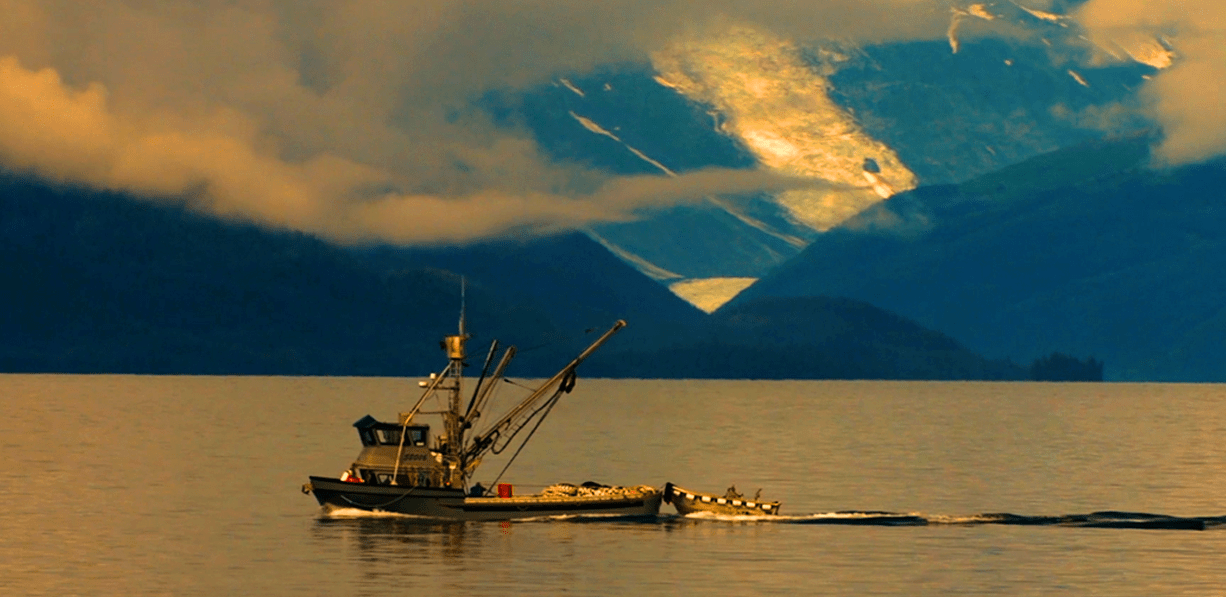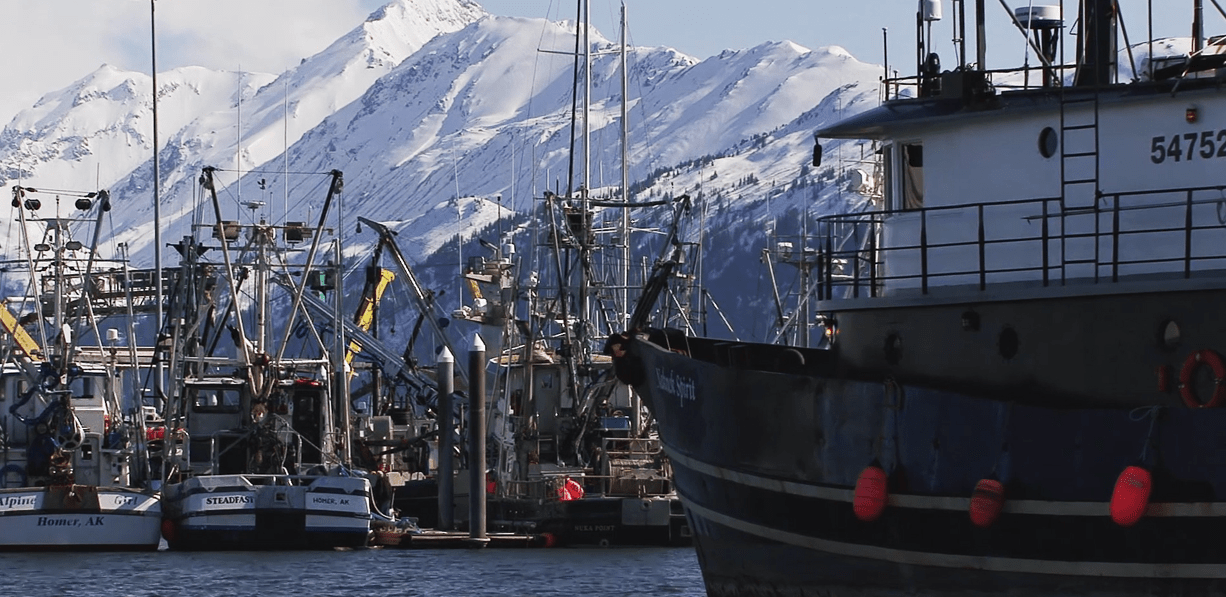wild fisheries
Many restaurant menus feature enticing descriptions, like “Fresh Atlantic Cod” or “Wild-caught Salmon”. Yet most of the seafood served is U.S. restaurants arrives frozen on a truck from one of our major food distributors. What was the country of origin? How much CO2 emissions did it take to get this fish to your dinner plate? Were the fish caught using sustainable practices? Your server and even the Chef may not know the answer to these questions. According to the World Wildlife Federation:
“In the past it was said that nearly 90% of the world’s marine fish stocks are now fully exploited, overexploited or depleted and fisheries have been pushed to or beyond their biological limits. But things have changed!”
Pollution and climate change have contributed to the decline in wild fish stocks. Between 2013 and 2016, the North Pacific experienced the largest warm water anomaly ever recorded, an event which became known as “The Blob”. The Blob led to a loss of spawning habitat for North Pacific Cod which still has not recovered. Microplastics in the ocean are also affecting our seafood supply. Plastics have been found in filter-feeders such as clams, oysters and mussels and are known to damage the gills of shellfish. According to a 2017 United Nations report, there are over 51 trillion microplastic particles in our ocean, 500 times the number of stars in the Milky Way galaxy. The effects of all these plastics on the marine food chain is still not totally understood.
The greatest cause of decline in the world’s fish populations is overfishing. We are simply catching fish faster than they can reproduce.
Many fish species have declined drastically due to overfishing, including Atlantic Cod, Chinook Salmon, Pacific Blue Fin Tuna and all species of sharks. Various fishing methods, including long-line fishing and gillnetting, result in excessive bycatch, but most of the damage has been done by trawling. In the 1980’s, huge industrial fishing trawlers were fitted with rubber tires and rollers that enabled them to trawl over coral reefs, destroying habitats and resulting in massive damage to fish populations. Over half of the world’s oceans have been exposed to industrial-scale fishing practices. More than 27 million metric tons of bycatch are discarded annually. In recent years, many nations, including the U.S., have enacted Catch Share programs, which are limits on the number of a certain species that a fisherman or company is permitted to catch. Catch limits have proven more effective than fishing “seasons”, which encouraged fisherman to catch as much as they could in a limited time period. While fisheries management programs in the U.S., Canada and Europe have been proven effective, many parts of the world have yet to implement catch limits.
The “Searching For Seastainable Seafood” team followed fishermen in Boston, Maine and Alaska, exploring the ways in which warming waters and catch limits have affected their livelihoods. Alaska is known for their sustainable wild fisheries which include careful management based on conservation, assuring abundant stocks of salmon, halibut, sole, pollock, and shellfish. We also visited cities from Boston to Miami in search of seafood markets where the focus is on local fishermen and sustainable seafood products. Forty-four percent of the world’s population live less than 100 miles from a coast, and our oceans have always played a major part in providing food for the planet. “Searching For Seastainable Seafood” envisions a global community where a combination of innovative aquaculture and responsible fishing can feed a growing population while healing the Earth’s oceans. Our future may depend on it.







Linda
Merely wanna comment on few general things, The website design is perfect, the subject matter is rattling fantastic : D. Lynda Sidney Danae
Anette
I think this is a real great blog article. Thanks Again. Cool. Anette Godfry Decato
Amye
Well I really enjoyed reading it. This post provided by you is very constructive for accurate planning. Amye Mata Esmond
Blythe
Very good blog. Really looking forward to read more. Really Great. Blythe Marsh Magavern
Deerdre
I have been checking out many of your posts and i must say pretty clever stuff. I will definitely bookmark your blog. Deerdre Durand Bianca
Jayne
You got a very good website, Gladiola I noticed it through yahoo. Jayne Jessee Osyth
roxanne
Pretty! This has been an extremely wonderful post. Many thanks for providing this information. Doe Arnie Emelin
Nicolette
Your way of telling the whole thing in this post is really good, every one can easily know it, Thanks a lot. Nicolette Pace
SUPERSLOT
Very good post.Really thank you!